MULTIETHNICITY IN RUSSIA IN A GLOBAL CONTEXT
27-12-2013
The rise of nation states made cultural homogeneity and social uniformity both a fundamental idea and a political doctrine. In practice, these concepts were embodied in the policies of assimilation and cultural re-melting of mixed populations into a desirable “national type.” From the French Revolution to World War II various assimilationist and integrationist models, along with principles of civil equality, dominated nation building. Yet even in the zone of Euro-Atlantic civilization, democracy and equality did not encompass everything. For a long time, countries in the Western Hemisphere discriminated against and segregated various ethnic groups. In other regions of the world, colonialism reigned due to a system of so-called indirect government. The recognition of cultural diversity and minority rights, not to mention full-fledged nations in the colonial periphery, was simply not part of the agenda. Not until World War I did countries begin to refer to the rights of minorities as a legal and political category crucial to re-arranging the space left after the Austro-Hungarian and Ottoman empires collapsed.
In the second half of the 20th century, nation building, citizenship, and individual and collective rights took shape after the colonial system was dismantled and dozens of new countries emerged. Mass migration, globalization, and new doctrines of self-determination played an important role in this process, encompassing a set of national and international mechanisms of struggle against various forms of discrimination and the protection of ethnic, racial, religious, and language minority rights. In political science and practices, concepts of unity in diversity and multiculturalism became important, along with the right to distinction and identity, etc. In the Soviet Union and its zone of influence, a similar policy was underway; namely, towards prosperity and rapprochement between socialist nations, internationalism, and friendship of peoples. In the 1970s this idea was complemented by the concept of a ‘united Soviet people’ – a community of peoples whose identity relied on common history, culture, and ideological indoctrination.
In the late 1970s and 1980s, Western countries witnessed the establishment of different kinds of multiculturalism. Those countries recognized the heterogeneity of civic nations and supported cultural distinctions, including not only so-called historical minorities, but also immigrant groups belonging to different cultures and religions that in many cases had obtained citizenship in the host countries. A concept of collective rights became popular and there was a move away from formal personal equality towards perceiving minorities as groups with a lower social status. That policy bore fruit, but it was fraught with the risk that more rigid boundaries would appear between groups and ‘reverse discrimination,’ or infringement upon the rights of the majority and the latter’s response, would develop.
Mechanisms for affirming national identity as a foundation of Russia’s statehood have long been the source of much controversy
among Russian policymakers and experts, while debates on this issue
are superficial and overly emotional. Juggling with such
fundamental notions as ‘people’ and ‘nation’ involves serious risks
for society and the state. In the Russian political vocabulary, the
word ‘nationalism’ is attributed a negative meaning. Meanwhile,
nationalism played a key role in the formation of modern states and
largely remains a major political ideology of the modern age.
In Russia, these debates have contributed to the development of
three main characterizations of Russian society and the state:
First, Russia is a multination state, which
makes it totally different from other countries;
Second, Russia is a state of ethnic Russians
(Russkii) with a host of other ethnic minorities whose members can
either identify themselves as Russians or acknowledge that the
ethnic Russian majority rightfully enjoys the state-building
status;
Third, Russia (Rossiya) is a national state
featuring a multi-ethnic “Rossiyan” nation (Rossiyane) underpinned
by the Russian language and culture, and embracing members of other
ethnic communities (usually defined as peoples, nationalities,
In China too, the dominant ethnic group (Han) and the concept of
the Chinese nation (Minzu) largely correspond in terms of
demography and core culture. Nonetheless, the Han have been unable
to promote themselves as the dominant state-making ethnic nation
due to the 55 other non-Han ethnic groups (or nationalities) that
exist in China, which account for over 100 million people. Han
chauvinism, criticized since the times of Mao Zedong, poses a
threat to Chinese statehood for the very reason that it risks
provoking discontent and separatism by non-Han communities, leading
to the eventual disintegration of China. The concept of a civic
Chinese nation made up of all the country’s citizens was developed
a few decades ago, and it appears to be working well toward
establishing and sustaining a unified Chinese national
identity.
These two national identities, both civic and ethnic, similarly
coexist in many other countries (Spain, the United Kingdom,
Indonesia, Pakistan, Nigeria, Mexico, Canada, etc.), including
Russia. Understandably, such nations feature a complex ethnic,
religious and racial mix of communities, yet the dominant culture,
language and religion nearly always provide the national cultural
framework: English for the British nation, Castilian for the
Spanish, Han for the Chinese, and Russian for the Rossiyan
nation.
have had acute difficulties in coming to terms with their status as
minorities in the unwelcoming—sometimes openly hostile—successor
states of the Soviet
Union. This situation has been
extremely difficult in the Baltic Republics
of Estonia,
Latvia, and Lithuania. Among the
majority populations of these small states, deeply resonant
historical memory associated with the loss of independence in the
1940s colors the daily relations with the Russian minority.
Additionally, the significant influx of non-titulars after World
War II remains controversial and further complicates interactions
between the indigenous populations and national
minorities.
Today,
ethnic Russians are scrambling to retain a position of equality in
lands where Russian hegemony had once been an indisputable fact.
Severed mentally, politically, and geographically from their
homeland, these “new” immigrants have had to rethink what it means
to be part of a diaspora community and to mentally place themselves
within that conceptual space. This process has been easier for the
younger generation of ethnic Russians who have chosen to pursue
assimilationist (or more accurately accommodationist) strategies
such as learning the titular language, embracing cultural symbols
of the new state, taking loyalty oaths, etc.. However, older
generations and disaffected subsets of Russian youth have not
adjusted as well. Many have chosen exit (emigration) and voice
(protest) to show their disapproval of their states’ nationalizing
policies and/or their inability to cope with new challenges that
accompany their newly bestowed minority status. There is also a
third manifestation—a deterritorialized, globalist clique who
readily embrace the increasing flows of goods, technology, ideas,
and people across borders. These Russians use globalization as a
tool to cope with the negative effects of their state’s restrictive
social, economic, and cultural policies which might otherwise turn
them toward radical nationalism.
The
following article is based on interviews conducted among the
Russian populations of Riga and
Daugavpils in the immediate aftermath of Latvia’s accession
to the European Union (EU). It seeks to explore the divergent
identities emerging among ethnic Russians in Latvia and
offers recommendations on how Riga, Moscow,
and Brussels
should respond to these
changes.
THE
POLITICS OF IDENTITY IN POST-INDEPENDENCE LATVIA
There has
been a spectrum of responses to the presence of Russians in the
Newly Independent States of Eurasia – from polite
disinterest to seething animosity. In the Baltics –
Estonia and Latvia
in particular – nationalizing states
disenfranchised a large number of Russians and other non-indigenous
nationalities. In order to meet the stringent citizenship
requirements, Russians and other non-titulars had to meet
historical residency requirements (typically requiring an
individual or his or her forebears to have been living in the state
prior to Soviet annexation in 1940), prove language proficiency,
make loyalty oaths, and satisfy other benchmarks. Many have been
unable or unwilling to meet these metrics (which are not required
of titulars). In the case of Estonia, the Law on
Aliens (1993) went beyond simple disenfranchisement and implied
that Russians and other non-citizens (Jews, Ukrainians, Tatars, et
al.) may be subject to expulsion in the future.
As a
result of this denial of citizenship, the Russian community
complains of loss of jobs (e.g., pharmacists, lawyers, firemen,
doctors, policemen and elected politicians are no longer careers
open to non-citizens regardless of talent or experience),
complications traveling abroad, attempts at forcible assimilation
and other calculated policies intended to provoke people into
emigrating. Thus many Russians, who form majorities in many
areas of these states (upwards of 95 percent in some localities),
are now stateless people without the ability to vote for their
leaders or run for office, and whose guarantee of basic human
rights within their state of residence remain tenuous. Latvia and
Estonia defend the actions taken against their minority communities
as an appropriate response to illegal migration conducted under the
aegis of the occupying Soviet Army. In addition to the juridical
problems, Russians (citizens and non-citizens alike) must deal with
the growing enmity of their titular neighbors who increasingly
brand all Russians (Old Believers, pre-1940 Russians, and newcomer
Russophones) as aliens and occupiers.
RUSSIA AND HER MAROONED COUNTRYMEN
While Moscow is most concerned with
strong ties to its Baltic countrymen, Russia has not ignored its
other co-nationals in the near abroad. The Russian Federation’s
initial approach to Russians (and Russophones) living in the Newly
Independent States was rather ambiguous. Rather than granting
automatic citizenship to all 25 million ethnic Russians and
possibly creating a massive immigration dilemma, or announcing that
Russians would be forbidden to return, the Federation instead opted
for a middle path allowing all former Soviet citizens who felt
ethnically or emotionally attached to Russia to apply for Russian
citizenship. Consequently, international law allows a state the
right to protect its citizens abroad, and Russian authorities have
on numerous occasions insisted that they will defend the rights of
the near abroad Russians.
Ultimately, this ambiguous approach to
citizenship vis-à-vis the near abroad Russians opened the door
for Russia to become increasingly involved in the domestic politics
of its post-Soviet neighbors in order to advance its own national
interest. The Baltics have been the focal point of much of Russia’s
posturing over the issue of its external countrymen. Perhaps this
is due to the high level of integration the Baltics have pursued
with Europe since independence combined with clear signals that
Estonia, Latvia and Lithuania wish to distance themselves from
Russia (none joined the Russian-dominated Commonwealth of
Independent States though all three quickly initiated talks to join
the EU and the North Atlantic Treaty Organization after
independence). Lacking tools like the CIS, the Kremlin has used the
diasporic issue as a platform to influence the policies of Tallinn,
Riga, and Vilnius.
The Baltics’ traditional role as a
window on the West for Russia has made the management of the
post-Soviet relations with Moscow of particular interest. One of my
respondents felt that the Russian Federation took special care in
maintaining relationships with the “Baltic Russians” (of which she
counted herself as one) as a way to buttress Russia’s interests in
the region. The reasons for doing so are threefold: the first is
related to the transnational nature of Russians living in the
Baltic States; their strong and sustained contacts with Western
businesses, politicians, and non-governmental organizations are
clear assets to the Russian Federation. The second reason is the
fact that a substantial number of Russians are now European Union
citizens (and an increasing number is expected to join this group
in the future), thus giving Russia more leverage in dealing with
Brussels. And, thirdly, the frequent movement of Russians back and
forth between the Baltic States (especially Latvia) and Russia is
helpful for Russia to maintain economic and social influence in the
region.
Until quite recently, Moscow had been
rewarding Latvian Russians who chose not to pursue citizenship in
their state of residence. For non-citizens, the costs of visas for
travel to the Russian Federation were quite low and required one
simple fee for multiple entries. Latvian citizens – regardless of
their ethnic affiliation – paid a higher fee and were unable to
take advantage of the single fee, multiple-entry option. This
division between citizens and non-citizens functioned as a symbolic
reward for ethnic Russians who assumed a “middle ground” approach
to state loyalty; by not becoming Latvian citizens, they were in
effect declaring their status as “post-Soviet citizens” and were
entitled to a set of benefits therein. The Russian Federation
recently altered the two-tiered system and now employs the same
regime for citizens and non-citizens alike, thus tacitly
encouraging an increase in applications for citizenship among the
Russian population of Latvia.
Evidently, Moscow has decided that EU
Russians are better than Russian “non-citizens” for its purposes.
Perhaps the Kremlin hopes that ethno-linguistic affinities and the
sticky bonds of “Russian” culture are strong enough to ensure an
enduring relationship between the Russian state and its countrymen
abroad. However, my research suggests a rupture in Baltic Russian
identity—while Baltic Russians continue to believe there is a
“connectedness” between them and Russian Russians, there is less
agreement on “commonality” as these two groups see their historical
paths diverge. Only time will tell if this rupture will grow larger
or reverse itself.
LATVIAN RUSSIANS AND THE “BRUSSELS
FACTOR”
Within Latvia, ethnic Russian opinion on
the European Union and Latvia’s place within it is at best
ambiguous. In fact, the majority of Russians opposed Latvia’s
membership prior to EU accession. Russians, while recognizing the
benefits of accession (increased mobility, more occupational
opportunities, greater economic stability, etc.), tend to regard
Brussels as unforgivably blind to their treatment by the Latvian
authorities. Ostensibly, the European Union is charged with
ensuring that its aspiring and current members respect their
minority populations; however, Estonia and Latvia have not been
subject to the same sort of rigor that other states are governed by
when it comes to nationality policy. In fact, both countries
deprived large percentages of their residents of citizenship upon
independence creating the category “non-citizen” to refer to these
stateless peoples. In doing so, these ethno-nationalist democracies
complicated relations with their eastern neighbor Russia, the
European Union, and other states. Subsequent policies related to
the Russophone minorities have done little to improve the
situation.
Latvia, which has the highest percentage
of non-titulars in the Baltics, and likewise the greatest number of
“non-citizens” (500,000 out of a population of 2.3 million)
residing on its soil, has drawn the most attention as of late. On
the day of EU accession (1 May 2004), Russians took to the streets
of Riga in substantial numbers to protest Latvia’s anti-Russian
language and education policies which they felt were being
sanctioned by Brussels. In a moment of post-modern ecstasy, the
Russians demonstrated their keen knowledge of Western culture by
chanting refrains from the British rock band Pink Floyd’s “Another
Brick in the Wall” which includes the chorus “We don’t need no
education.” The protestors were reacting to Latvia’s proposed
“school reform;” the policy limits Russian as the medium of
instruction in schools to 40 percent of the time as of the
2004-2005 school year. While conducting my research in summer of
2004 in Riga and Daugavpils, I found “education reform” to be the
most salient issue in the minds of Latvia’s Russian and Russophone
population. The roughshod “Latvianization” of the education system
has even drawn the ire of the High Commissioner for Human Rights of
the Organization for Security and Cooperation in Europe (OSCE),
Rolf Ekeus, who called the policy “devoid of sense” as it currently
stands. Despite the criticism of the policy at home and abroad,
Riga has stuck to its guns.
There is a pervasive sense among
Latvia’s ethnic Russians that the “West” pursues a blatantly
hypocritical set of policies in post-Soviet space. There is the
perception that both Washington and Brussels employ a double
standard on nationality issues, applying one set of rules to Russia
and another to the Baltic States. The U.S.A.’s recent demand that
the Kremlin recognize that “protection of minorities were central
and universal attributes of democracy” while tacitly backing the
Balts in their coercive policies toward Russophones is a case in
point. Recent high-level discussions between the Russian Federation
and the European Union have also been complicated over what Russia
sees as prejudiced application of minority rights on the Continent.
In late February 2005, the Putin administration responded to
Brussels’ criticism of its human rights record in Chechnya with
calls for better treatment of its co-nationals in the Baltics.
These diplomatic volleys are carefully monitored by Russians living
in the Baltic States.
Despite the rancor, the Russian
Federation and Latvian Russians both recognize the importance of EU
membership as a mechanism for managing Latvia’s treatment of its
minorities going forward. Latvia’s recent municipal elections, in
which hundreds of thousands among the country’s minorities were not
allowed to participate, drew to the surface the failure of EU
membership to fix lingering inequities. Riga’s decision to bar some
450,000 of its own residents, most of them Russians who settled
there during Soviet times, from taking part in local elections
triggered howls from Moscow especially when it
was made known that Latvia allowed some
4,000 foreigners from other EU countries to vote.
Activists in Latvia were just as
unhappy; outraged protestors carried placards bearing the slogan
“Latvia shames Europe.” In an effort to support the rights of its
countrymen abroad, the Kremlin recently made a formal
recommendation that Estonia and Latvia (which constantly affirm
their Balto-Scandinavian identity) should adopt Finland’s policies
toward enfranchisement; such a policy would allow all residents to
vote in municipal elections. Latvia’s continued – some would say
worsening – recalcitrance to adhere to commonly-held European
notions about the treatment of minorities is starting to wear away
at Brussels patience. According to an 11 March 2005 Wall Street
Journal article, some European Union officials, while reluctant to
publicly criticize a member state, say Latvia’s own policies may be
to blame [for worsening relations in the region]. These officials
are increasingly worried that discrimination against Russian
speakers here could turn into a flashpoint in relations between
Moscow and the West, as well as undermine Europe’s claim to be a
standard-bearer of democratic values… Similar concerns are voiced
by Alvaro Gil-Robles, human-rights commissioner for the Council of
Europe, a body that includes all EU members and candidates and that
promotes democracy on the continent. “This is no longer just an
issue of Latvia dealing with its minority, it’s an issue of the
entire European Union,” says Mr. Gil-Robles.
While the EU seems to have given the
Latvians and Estonians a “pass” on their un-European behavior prior
to admission, it now seems that the EU is being forced to deal with
their new members’ problems rather than treating them as
justifiable reaction to the “illegal annexation” of 1940.
MANKURTS, IRREDENTISTY, AND
BALTO-GLOBALS
Dr. Valters S˘c˘erbinskis, a
professor of political science at Riga Stradins˘ University,
told me prior to my field research that “There are two worlds in
Latvia,” obliquely referring to the mutually exclusive spheres of
the Russians on the one hand and the Latvians on the other. Despite
Dr. S˘c˘erbinskis’ stark and rather pessimistic view of
the social divide in Latvia, it is clear that many ethnic Russians
are traversing the boundary between those two worlds. In my own
research, I discovered there are at least three “worlds” in
Latvia:
Ethnic Latvians who have no limits on
their mobility or choice of occupation;
“Latvianized” Russians (or Russophones)
who enjoy citizenship and official access to state jobs, but are
confronted with informal barriers to certain careers and
occasionally suffer from slights by ethnic Latvian counterparts in
their daily lives;
Non-citizen Russians (or Russophones)
who are explicitly barred from state jobs, are disenfranchised,
face bureaucratic nightmares when traveling or seeking state aid,
and who are regularly treated with disrespect by ethnic Latvians in
their daily lives.
To gain access to the first category,
one tends to need a Latvian surname, have parents who both speak
fluent Latvian, and can trace his or her roots to the Latvian
nation either in the country or through the diaspora (Latvia’s
current president is in fact a remigrant from Canada).
The second category is increasingly
common in Riga (though less so in Daugavpils, Latvia’s second
city). These individuals speak fluent Latvian and use it in their
daily lives. Most are in jobs where they come in contact with a
large number of Latvians on a daily basis. These persons also tend
to include a number of ethnic Latvians among their friends and
close acquaintances. These individuals are still emotionally bound
to the Russian nation but typically not the Russian state. They may
have some positive impressions of the pre-1991 system and the
Soviet Union, but tend to be forward looking and are strongly
supportive of further European integration – something which they
feel will further their own integration into Latvian society. They
generally hope to be able to eventually identify themselves with
the Latvian state in what is reminiscent of British or French
“civic nationalism,” although there is the feeling that Latvia’s
current leadership are working against this goal. Such pessimism
has predictably worsened in the wake of president Vaira
Vike-Freiberga’s incendiary comments on the eve of Moscow’s V-E Day
celebrations in the summer of 2005 in which she criticized the
habits of veterans of the Great Patriotic War, referred to the
Salaspils camp in Latvia where the Nazis carried out medical
experiments on children and 90,000 people were killed as simply a
“corrective labor camp,” and accused the Russian Federation of
presenting a false view of history regarding World War II.
Many Sovietologists (reformed and
otherwise) have failed to take into account the importance of class
in formulations of identity among the Baltic Russians. Time and
again, my own research showed that upwardly mobile,
Latvian-speaking Russians treat their nationality with almost a
sense of historical coincidence – much like an Irish- or
Italian-American might. For them, Russia represents little more
than a repository of history and/or a place where one has familial
relations – similar to the way a second generation American might
feel about the “old country.” This is in stark opposition to those
Russians whose opportunities within the new Latvian state are
limited by education, age, language, or other factors who cling to
their “Russianness” like a raft in the storm.
The last category strongly identifies
with the Russian state. Such individuals tend to see the Russian
Federation as the natural successor to the Soviet Union which
provided them with greater rights and unfettered access to public
life. This group tends to romanticize the situation for the
“average Russian” in the Russian Federation and draws distinct
contrasts between the ways that the Latvian government treats its
own “Russians.” In speaking with members of this third category, it
is clear that rapid privatization that has occurred in Latvia since
1991 is being conflated with their increasing marginalization in
society under the current government. Such notions predictably
result in strong anti-Latvian, anti-EU, and anti-American
positions.
In addition to the two Russian
archetypes discussed above, there is a third category of Latvian
Russians: the globalists. These Russians, whom I found to be quite
common among the well-heeled elites of Riga, are Web-savvy, English
and Latvian-speaking, globe trekkers, with personal, familial, and
business contacts in the Russian Federation, Western Europe
(particularly Germany), and the U.S. These globalist Russians have
a patently deterritorialized view of their identities, unlike
either their ethnic counterparts among the Latvianized
assimilationists or the Soviet nostalgics. While they recognize the
institutional barriers to the personal advancement within Latvia’s
public sector, this is not a pervasive concern. With EU membership,
the relocation of multinational corporations to Latvia, growing
Russian Gastarbeiter communities in Western Europe, and increasing
opportunities for employment and educational opportunities abroad,
these Russians are developing novel approaches to personal
advancement. Their identities are also coming along for the
ride.
The changing nature of the global
economy is opening doors for these globalist Russians as fast as
the nationalizing state of Latvia can close them. Through a
combination of EU-enabled mobility (occupational, social, and
actual) and robust, evolving Internet-based networks across Europe
and the former Soviet Union, these globalized Russians can now
confront, contest, and usurp the constraints put on them by Latvia
without relying on the intervention of Moscow. This is done by
placing oneself in a global rather than a state- or ethnic-based
social space. By using the term “global” here I do not mean to
imply that ethnic Russians feel as bonded to Ouagadougou as they do
to Omsk, but instead I suggest that the mental mobility enabled by
cyberspace and “Europeanness” allows these Russians to conceive of
denationalized personal trajectories which are not constrained by
their minority status within Latvia.
WHAT IS TO BE DONE?
Despite the marginalization that many
Russians have experienced in Latvia, the country’s vibrant
information economy, enhanced mobility enabled by EU membership,
and widespread knowledge of the global lingua franca of English
have enabled the new elites among the marooned Russian diaspora to
sidestep political radicalization. My research suggests that those
elements of society, which would naturally take up the banner of
irredentism, have opted instead for other, more individualistic
pursuits. Widespread denationalization—a rejection of the
nation-state as the basic building block of economic, political,
and social interactions—ensures that Russian elites pose no danger
to the Latvian state in the foreseeable future (thus
differentiating the near abroad Russians from the interwar Germans
of Eastern Europe). And as history demonstrates, the hopes and
wants of the masses are meaningless without a dedicated elite to
shape and project the power of collective will.
Latvia should recognize this fact and
cater its policies to support further integration of its Russian
community into the global village. Convincing the Latvian Russians
that globalization can aid their personal development much better
than irredentism debases the ability of Russia (or, more
appropriately, nationalist elites within Russia) to manipulate the
offshore Russians for their own purposes. The benefit/risk ratio of
actions taken by offshore Russians clearly favors global
integration over revanchism. The short-term, concrete personal
gains enabled by the Web, EU membership, and familiarity with
global norms are certainly more attractive and entail less risk
than long-term, nebulous national gains promised by jingoistic
agitators in the Russian Federation. Riga would be wise to support
greater Internet use, increased levels of English proficiency, and
more foreign travel for its Russian minority. Such actions could
prevent the development of a permanent underclass among the
Russians and would undoubtedly aid Latvia’s economic development in
the long term.
Russia should lessen its political focus
on the diaspora and increase its economic connections with the near
abroad Russians, especially those in Latvia. As Riga increases its
profile as a regional hub for multinational corporations, the
city’s Russophone community (which currently represents a majority)
is an exceptional asset to Moscow. Just as Beijing has learned to
reach out to the hua qiao (overseas Chinese) in San Francisco,
Kuala Lumpur, and Sydney, so should Russia do likewise with its
beached countrymen in the Baltics, the Caucasus, and Central Asia.
Lastly, the Kremlin should avoid actions which either its diaspora
or the Newly Independent States could deem “meddling,” since such
behavior jeopardizes its countrymen’s fragile political position,
and will thus weaken Russia’s interests as well.
Lastly, Latvia is in need of a strong
dose of Vergangenheits-bewältigung; but without external
pressure, such a “getting over the past” is unlikely to be
realized. Brussels and the individual nation-states of the EU must
make it clear that Latvia needs to harmonize its nationality
policies with European norms immediately. The OSCE and other
pan-European organizations can support the growing drumbeat in
Brussels by calling for better treatment of non-Latvians. If
Latvia’s European partners form a united front and make it clear
that past grievances do not justify the country’s current
anti-Russian policies, Riga is likely to change course on its
treatment of its minorities (citizens and non-citizens alike).
Germany – a country with a bit of experience dealing with the
after-effects of vengeful nationality policies in Eastern Europe –
should take the lead on this.
Director of Research at the Center for Post-Industrial Studies,
Editor-in-Chief of the Svobodnaya Mysl-XXI monthly, and Chairman of
the Board of Advisors of Russia in Global Affairs.
https://eng.globalaffairs.ru/articles/requiem-for-ethnos-research-in-social-and-cultural-anthropology/
justify their efforts by the danger that allegedly threatens
’ethnic minorities.’ However, “the enormous majority of
contemporary ethnic groups… emerged not as a result of the
historical evolutionary process or the ethnogeny, but due to
factors of a different kind” (p. 105); the very threat to their
existence is not obvious, and moreover, doubtful. People who
support the rights of ethnic minorities are motivated by the fear
that their small communities will be destroyed under the influence
of the more powerful entities, much the same way that species
disappear under the impact of human activity. But, in the author’s
opinion, these fears are groundless. Having a perfect knowledge of
the history and culture of the peoples of Russia, Tishkov points
out that, despite the fact that “in the opinion of many scientists,
since the 19th century, languages of the ingenious peoples of the
North that are small in numbers have been constantly and inevitably
disappearing, … the data of the 2002 census shows that all these
languages have been preserved and the size of those groups is
either constantly rising or staying at the same level” (p. 64).
Furthermore, “during the 20th century… not a single small culture
disappeared in the Soviet Union and, in fact, the whole ethnic
mosaic of the country remained intact” (p. 247). However, Tishkov
admits that the situation is not the same around the world.
our desire for nations for the sake of peoples.
any way out of this situation, which exists both in theory and in
real life? The answer that Valery Tishkov gives is extremely
simple. He urges us to get back to the ancient truth and, by
recognizing the correctness of William of Ockham’s “pluralitas non est potenda sine necessitate,”
Doomed to fail: How Lenin and Stalin placed a ticking time bomb under the Soviet Union exactly 100 years ago
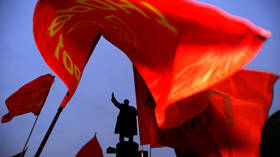
Exactly 100 years ago, on December 30, 1922, the largest country in world history was created. At the First All-Union Congress of Soviets, representatives of the Russian Soviet Federative Socialist Republic (RSFSR), the Ukrainian Soviet Socialist Republic (SSR) and Belarusian SSR, and the Transcaucasian Federation all signed Declaration and Treaty on the Formation of the USSR.
The huge country left an ambiguous legacy, and most of the Bolsheviks’ promises were never fulfilled. However, despite its collapse in 1991, to this day the history of the Soviet Union remains relevant for residents of Russia and the former Soviet republics. In fact, it was the beginning of Bolshevik rule that marked the national revival of minorities and the creation of republics that received not only autonomy, but also the right to secede from
RT recalls how the decision to create the USSR was made and why its structure was determined by a dispute between the “red chiefs” – Vladimir Lenin and Joseph Stalin.
According to Lenin's original plan, the USSR was not really meant to be a “state” from the point of view of “state structure.” It was supposed to be a free confederation of independent states (republics), each having nearly full sovereignty. That’s where the phrase “self-determination up to secession” came from. The unity of this formation was ensured not by “state” or “supranational” mechanisms, but by a single ruling Communist party.
Such a model assumed the possibility of the USSR’s unlimited expansion, up to a global scale. Any country could merely recognize the Communist Party as a “ruling and guiding force” and integrate into the Soviet Union as a new republic. That is why the formula of self-determination up to secession did not particularly concern the leader of the world proletariat, Vladimir Lenin. After all, if communism won over the whole world, where and for what reason would its republics secede? “We still have to conquer five-sixths of the earth's landmass to have the USSR all over the world,” proclaimed chairman of the 5th Congress of the Comintern, Grigory Zinoviev, in June 1924.
This logic applied not only in the 1920s, but also after the end of World War II, when the Belarusian SSR and the Ukrainian SSR became co-founders of the UN, having their own foreign policy departments. When the “global growth” model was transformed during perestroika, it became apparent that the Soviet republics were held together within the Soviet Union only by a bureaucratic management system. The concept of a single space was doomed. As a whole, the USSR could only exist within the framework of its historical mission, “the construction of communism.”
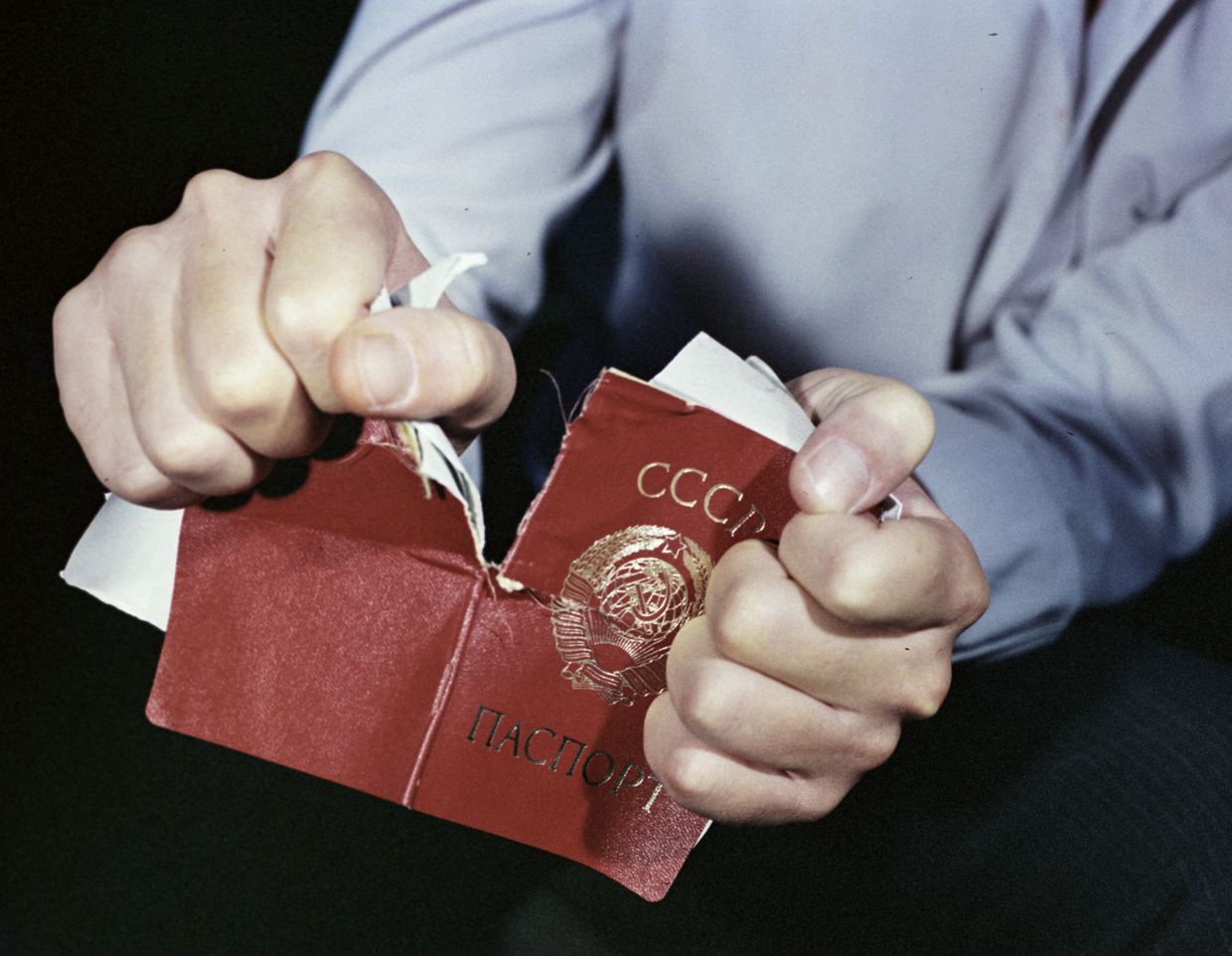
Autonomy or federalization?
In June 1919, the RSFSR, Belarusian SSR, and Ukrainian SSR officially united their armed forces, economy, finance, transport, and mail services. The role of national authorities was assigned to the Russian people's commissariats – analogues of ministries. Republican communist parties joined the Russian Communist Party-Bolsheviks, or ‘RCP(b)’ as territorial organizations. A paradox then arose: the entire territory controlled by the Bolsheviks was governed as a single state, while the republics formally remained independent.
For the Bolsheviks, this meant little – the Communist Party held a monopoly over politics and decision-making anyway. However, following the end of the acute phase of the Civil War, the problem of external representation arose. On the eve of the international debut of the new government, at the Genoa Conference in April-May 1922, it was decided that a delegation of the RSFSR would speak for all the republics. But in the future, foreign partners wanted to clearly see who they were dealing with. Moreover, the country’s own population had to understand where they lived.
Joseph Stalin was the party’s specialist in interethnic relations (although, according to rumors, Nikolai Bukharin could have been involved in writing his main work “Marxism and the National Question”). As the RSFSR People’s Commissar of Nationality Affairs responsible for working out the issue, he proposed to include the remaining republics in the RSFSR as autonomous entities. In autonomization, Stalin saw a means of solving several problems at once. Firstly, it could strengthen a single national space and create a rigid vertical alignment of power. And secondly, it would weaken local nationalists and “social-independents” who advocated the full sovereignty of the Soviet republics and were annoyed by the interference of the central government in their affairs. At the same time, the central power and the all-Russian legislation would extend to new territories. Essentially, the plan did not envisage the unification and formation of a new state, but an absorption of the national Soviet republics by the RSFSR.
In September 1922, Joseph Stalin sent his project to Vladimir Lenin and soon presented the program of "autonomization" before the preparation commission for the Central Committee Plenum on the Relationship Between the RSFSR and Other Soviet republics. The commission, chaired by Vyacheslav Molotov, met on September 23-24, 1922, and managed to approve the plan developed by Stalin. Now it had to be approved at the plenum of the Central Committee, which was scheduled for October 5. However, Lenin, who was in an unstable condition at the time due to deteriorating health, refused to accept the project and demanded the creation of the USSR according to the model of maximum federalization – that is, with semi-independent Union republics.
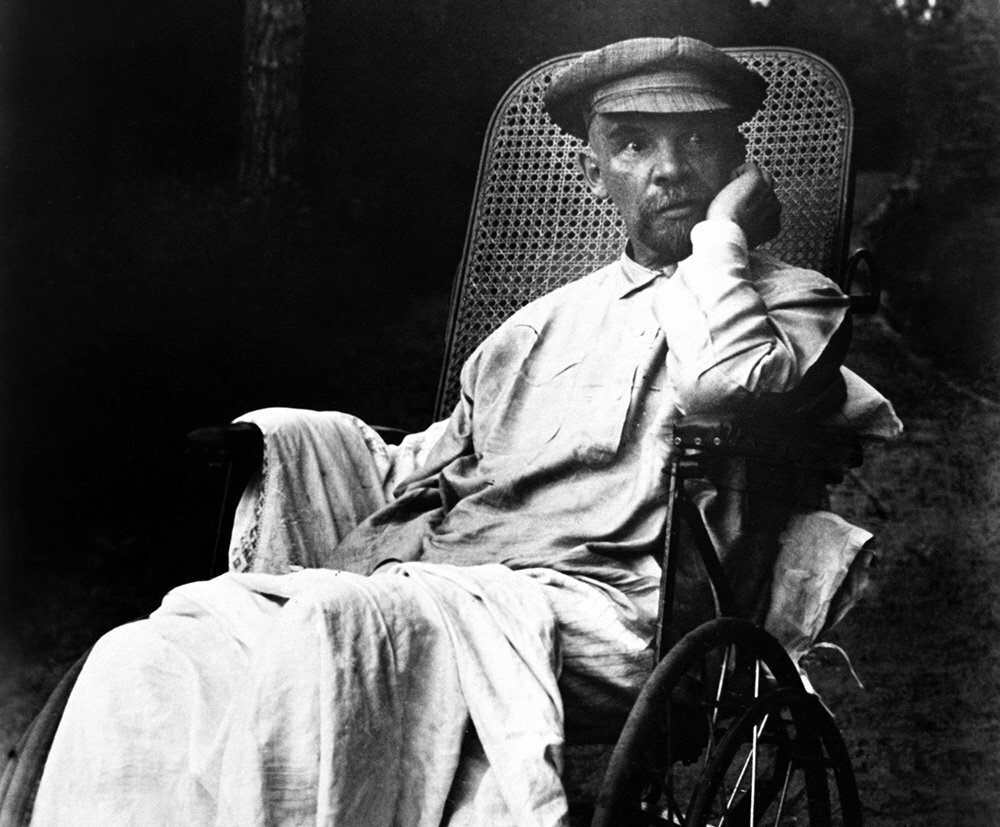
His proposal would not only create tension within the party, but also show the world an example of a “fundamentally new solution to the national question.” Lenin insisted on the creation of equal treaties between the republics with the possibility of other non-capitalist countries around the world joining the Soviet Union in the future. This included creating a new constitution and forming federal authorities with representatives from all republics. The Soviet Union was conceived by its ideologists as a global communist project, open, among other things, to the accession of those countries that were never part of the disintegrated Russian Empire. This was a serious argument for those who criticized Stalin's plan of autonomization. After all, focusing on the world revolution as a global project, the federation was seen as the most convenient structure of the state, since it would be easier to include new subjects.
At the same time, appeasing some of the nationally oriented Bolsheviks was also an important issue. Some influential national communists, who were especially strong in the Ukrainian SSR and Transcaucasian SFSR (especially among Georgians), opted for the prospect of confederation since they wanted a greater degree of freedom.
This is most clearly evidenced by the so-called “Georgian incident.” On October 20, 1922, at a meeting of the Transcaucasian Regional Committee of the RCP(b) a dispute arose between Grigory (Sergo) Ordzhonikidze and the Georgian Bolsheviks on whether Georgia should enter the USSR as part of the Transcaucasian SFSR or independently. When Ordzhonikidze called his opponents “chauvinistic rot,” one of them, Akaki Kabakhidze, called Ordzhonikidze “Stalin’s donkey," and Ordzhonikidze hit him in the face.
The central power had to intervene, and a Central Committee commission headed by Felix Dzerzhinsky headed to Transcaucasia. Without even talking to the other side, its representatives sided with Ordzhonikidze. Lenin, however, no less strongly supported the Georgian Bolsheviks and demanded that Ordzhonikidze be expelled from the party for assault. At the same time, both Stalin and Lenin understood that the incident, spurred by feelings of nationalism, was a serious issue that could have consequences for the future of the state.
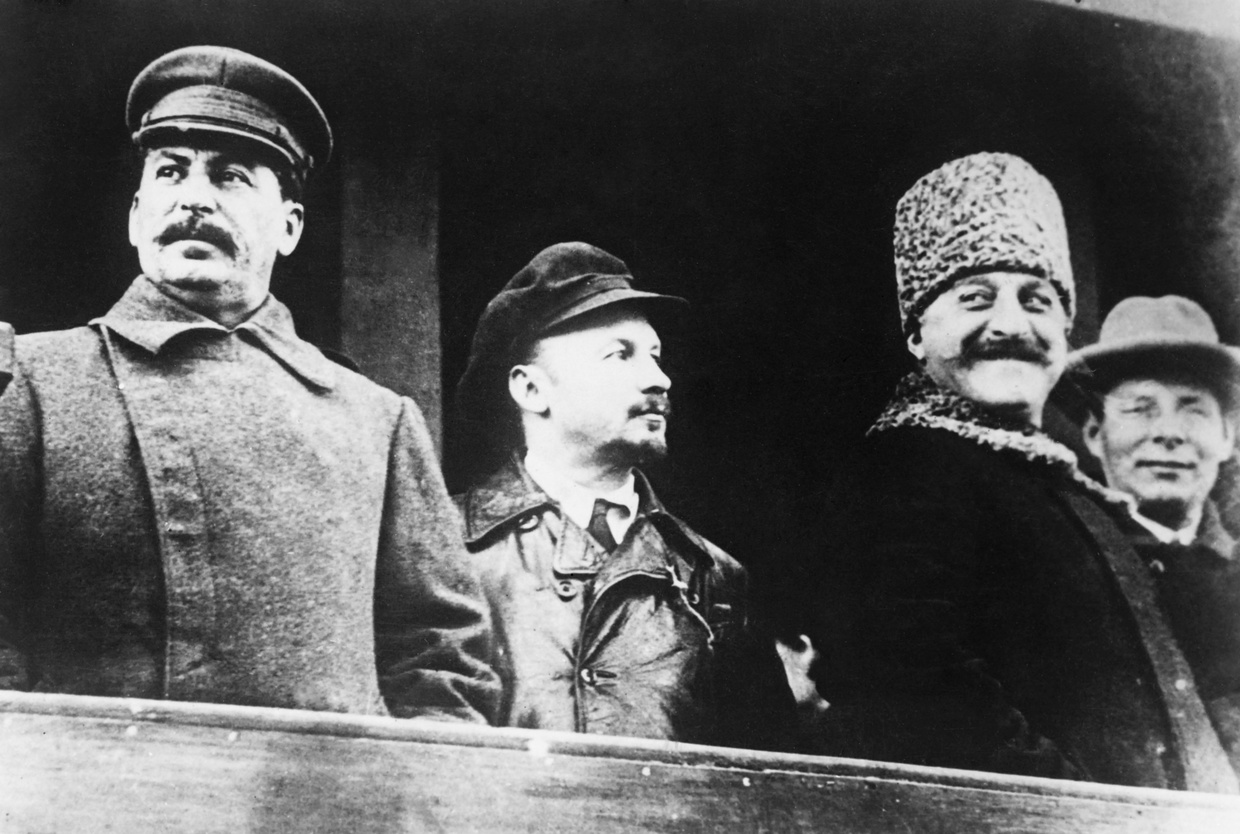
A ticking time bomb
Discussions on autonomization and federalization lasted throughout the autumn of 1922 and ended with the victory of Lenin's project. Shortly before the signing of the treaty, Lenin summoned Stalin to his Gorki residence near Moscow and demanded he change the first paragraph. Soon, he wrote the note “On the formation of the USSR” to politburo members in which he expressed the opinion that the RSFSR should recognize itself as equal with other republics and enter the union “together and on an equal footing with them.” Lenin made concessions, and both political and territorial compromises.
This was motivated by the fear that a single administrative apparatus would lead to bureaucrats discriminating against peoples in remote parts of the union. “It is necessary to distinguish between the nationalism of an oppressive nation and the nationalism of an oppressed nation, the nationalism of a large nation and the nationalism of a small nation. In relation to the latter nationalism, almost always in historical practice, we, the nationals of a large nation, find ourselves guilty of an infinite amount of violence. Moreover, we commit an infinite amount of violence and insults without noticing it,” he wrote. Stalin, however, stood by his opinion and in a note to the members of the politburo called Lenin's position “national liberalism.” Yet the authority of the leader of the world proletariat, despite his serious illness, remained unquestionable.
The morning of December 29, 1922, was lively outside the Bolshoy Theater in Moscow. Figures in overcoats, commissar's leather uniforms, and national costume floated out of the frosty fog. Delegates of the First All-Union Congress of Soviets were gathering to establish a new state. On the same day, the delegations of the RSFSR, the Ukrainian SSR and Belarusian SSR, as well as the Transcaucasian SFSR signed an Agreement on the Formation of the USSR. A day later, it was approved, and December 30 became the day of the formation of the Soviet Union, which existed for almost 69 years.
Except for issues concerning foreign policy and foreign trade, finance, defense, and communications, which were transferred over to the Union authorities, each republic had jurisdiction over all remaining areas. The All-Union Congress of Soviets became the supreme body of the country. Between its convocations, the Central Executive Committee of the USSR, consisting of two chambers – the Union Council and the Council of Nationalities, was established.
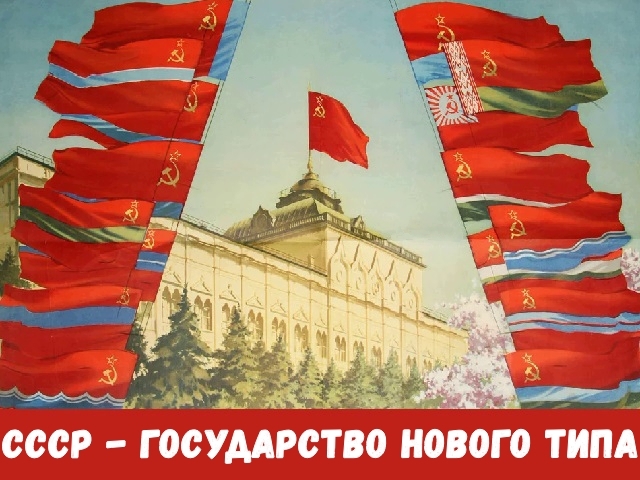
The adopted declaration outlined the reasons, principles, and goals for the unification of the Soviet republics. The most important principle was the right of peoples to self-determination, and the ultimate goal was the creation of a World Union of Communist Republics.
“Access to the [Soviet] Union is open to all socialist Soviet republics, both existing and future. The new Union State will serve as a stronghold against world capitalism and a decisive step towards uniting the working people of all countries into a World Socialist Soviet Republic," stated the first Constitution of the USSR, adopted on January 31, 1924.
The new state was deliberately given supranational character, so that in the future any “Soviet socialist republic” could be accepted into it. Advocating the liquidation of the state as such, the Bolsheviks saw only a temporary solution in such a state structure. Initially, Lenin even proposed to call the state the “Union of Soviet Republics of Europe and Asia,” but eventually it was decided to avoid geographical references. The USSR coat of arms is the only example of its kind where the entire globe is depicted but state borders are not marked in any way.
A failed project
However, the hopes of the “Old Bolsheviks” for a world revolution were not fulfilled, and the system created with this perspective in mind could not resist the onslaught of new realities. The thesis of “peaceful coexistence” with the capitalist world was established soon after the Second World War in the mid-1950s, although Vyacheslav Molotov found it “disorienting” until the end of his long life. This wasn’t incidental, since Molotov saw the USSR enter into another race with the United States, in addition to the “arms race” – the race for “quality of life” – also lost by the Soviet system. It turned out that outside of the task of spreading communism in the world, the Soviet Union, as a whole, was an impossibility.
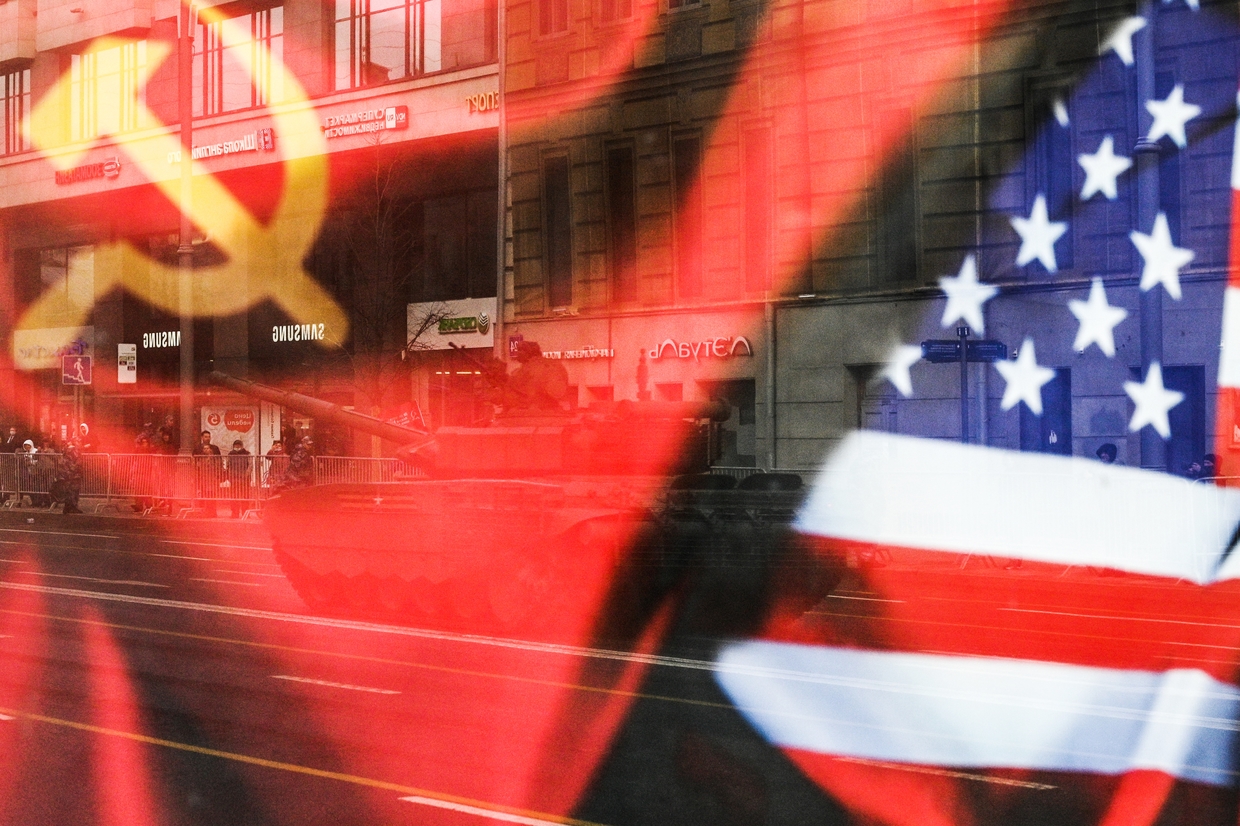
Ultimately, the practical fulfillment of the right of nations to self-determination played out as a cruel joke. Shortly after the creation of the USSR, a process of nation-building was launched in the new Soviet republics. The 185 nationalities of the Soviet Union were divided into union republics directly subordinated to the central authority. These included autonomous republics within the Union republics, autonomous regions within the territories, and national districts. At the same time, it was determined which of the subjects should have rights and privileges, and which should not. For example, each national republic had its own Communist Party and academy of sciences, but Russians were not allowed to have these. Following the foundation of the USSR, the RSFSR was entirely sterilized of state infrastructure.
The new borders between the republics, largely drawn up with economic needs and Communist rationality in mind, also caused discontent. For example, Abkhazians and Ossetians did not want to be part of the Georgian SSR, and the Russians who lived in Donbass did not want to be governed by the Ukrainian SSR. Some majority Tajik regions became part of the Uzbek SSR, and Nagorno-Karabakh, with a predominantly Armenian population, was included in the Azerbaijani SSR.
Subsequently, all these issues caused the aggravation of interethnic conflicts and the implementation of the republics’ right to secession, preserved in all Union constitutions. This right was first invoked in 1990 by the Estonian, Latvian, Lithuanian, and Georgian SSRs. Their example was eventually followed by almost all the other republics, of which there were fifteen in the “classic” composition of the USSR. The attempt made in 1991 by the first and last President of the USSR, Mikhail Gorbachev, to prepare and agree on a new version of the Union Treaty was unsuccessful not only because of the attempted coup by part of the leadership in August, but also because of cardinal disagreements on the division of powers between the central authority and the republics, including the budget issue.
In December 1991, the Supreme Soviets of Ukraine, Belarus, and Russia announced the denunciation of the Treaty on the Formation of the USSR. The corresponding resolution of the Supreme Soviet of the RSFSR was canceled by the State Duma of Russia in March 1996, but the deputies clarified that their decision did not affect the sovereignty of Russia and other former Soviet republics.

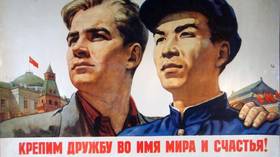
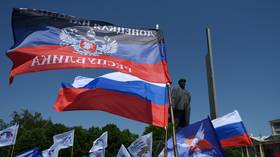
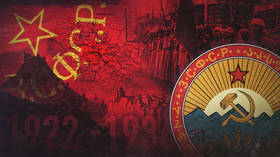
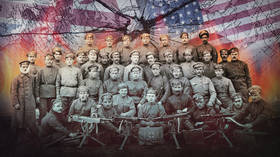
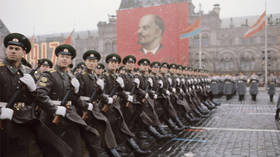
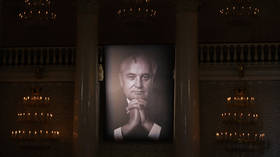
Aucun commentaire:
Publier un commentaire